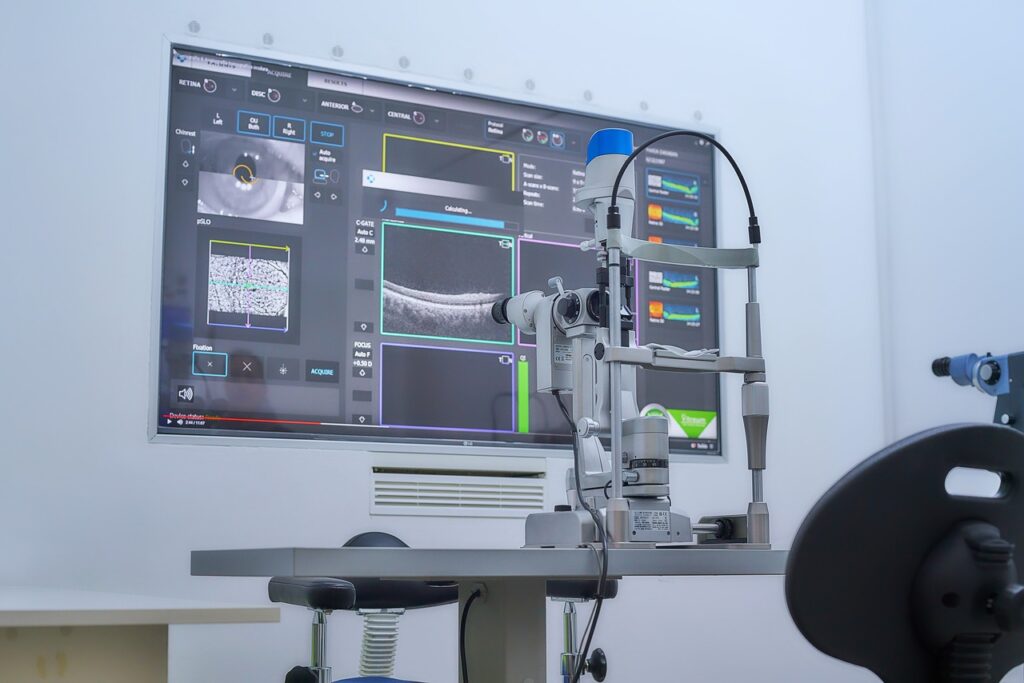Cataracts are extremely common in the United States, with this eye condition affecting over 24.4 million Americans aged 40 and over. Furthermore, by the age of 75, over half of all Americans will have developed cataracts. That being said, cataracts are treatable with surgery, with this procedure being both simple and safe.
Suppose you are considering undergoing cataract surgery or thinking you may have cataracts but are worried about seeking treatment. In that case, the blog below should help to convince you of the merits of this procedure.
Improved vision
Although your vision may be blurry at first as your eye heals and adjusts to the new lens, you can expect your vision to start dramatically improving in as little as 2-3 days.
You may start to notice that colors appear brighter, whereas before, they looked muted and had a yellow-brownish tint.
Enhanced quality of life
Since cataracts develop slowly, it may have taken you a while to notice that your vision has deteriorated. Maybe you were finding it difficult to read or drive, but you simply put it down to getting older. This can lead to you gradually stopping doing the activities you once loved, which can cause both depression and anxiety.
However, after cataract surgery, your quality of life will drastically improve, and you will be able to do all the things you love once again.
Lens Replacement
Lens replacement surgery, also known as refractive lens exchange or clear lens extraction, offers several benefits for those struggling with vision problems like cataracts or severe refractive errors. By replacing the eye’s natural lens with an artificial intraocular lens (IOL), this procedure can significantly improve vision clarity and reduce or even eliminate the need for glasses or contact lenses. It can correct a wide range of vision issues, such as nearsightedness, farsightedness, astigmatism, and presbyopia, offering a permanent solution for clearer vision. Additionally, lens replacement surgery helps prevent cataracts from developing in the future, enhancing both the quality of life and long-term eye health.

When choosing a lens for cataract surgery, consider factors such as the lens type, material, and your lifestyle needs. The main types of Intraocular Lens (IOL) include monofocal, multifocal, and toric lenses. Monofocal lenses provide clear vision at a single distance, while multifocal lenses can offer clarity at multiple distances, which may reduce the need for glasses. Toric lenses are ideal for those with astigmatism. Additionally, lens material—either silicone or acrylic—affects the flexibility and adaptability of the lens inside the eye. Your eye health, level of astigmatism, and activities such as reading, driving, or using digital devices should guide your choice. Always consult with your eye doctor to determine the best option for your specific needs.
Decreased risk of falls
Did you know that loss of vision is one of the most common causes of falls, with experiencing a fall being extremely dangerous and, in some cases, fatal for older people?
Fortunately, patients who choose to have cataract surgery see a 16% decrease in the risk of a hip fracture in the next year. Those with severe cataracts have a 40% reduction in mortality risk than those who don’t have the procedure carried out.
What you can do to aid your recovery after cataract surgery
The recovery time for cataract surgery is short, and any soreness or discomfort you feel should be gone in only a few days. However, with that being said, there are steps that you can take to aid your recovery further, including:
- Avoid bending over
- Avoid any heavy lifting
- Avoid sneezing
- Use your eye drops as instructed
- Use your eye shield at night
- Wear sunglasses when exposed to the sun
- Take pain relief if needed
- Don’t drive on the first day
- Avoid swimming or hot tub use
- Avoid rubbing your eye
Talk to your doctor if you are still worried about undergoing cataract surgery and are unsure if it is the right decision for you. You should know that this eye condition will slowly worsen over time, restricting your ability to carry out everyday tasks such as reading and driving.
Try talking to your doctor about your concerns and see if they can put your mind at rest, and try to imagine how good the world will look in bright, clear, and vivid colors again.
Featured Image by Paul Diaconu from Pixabay
